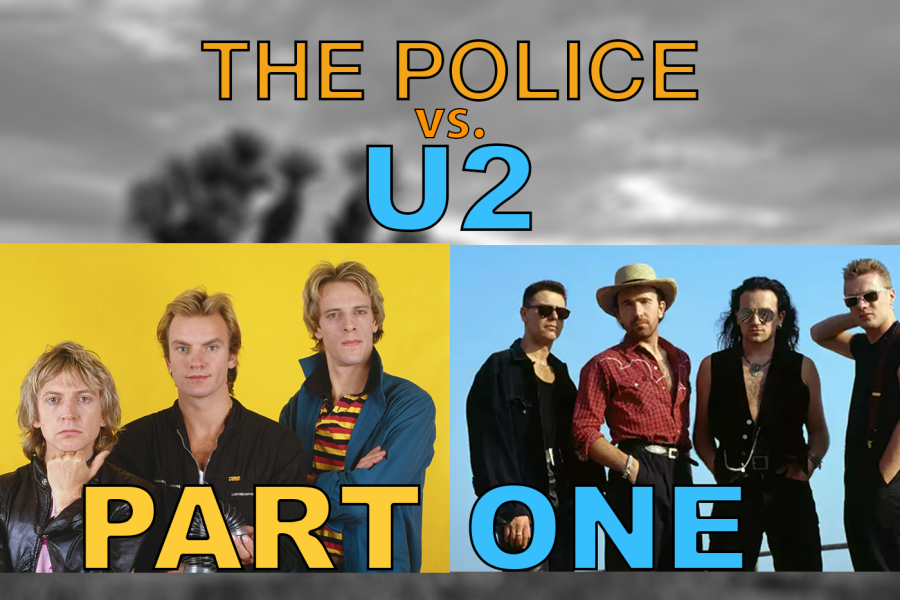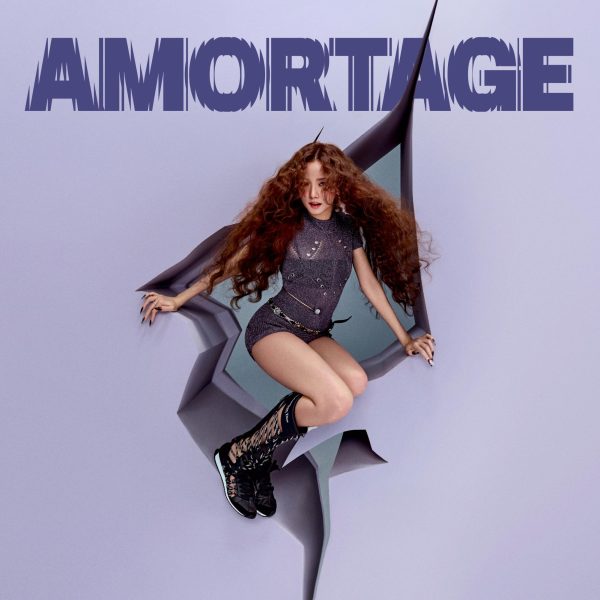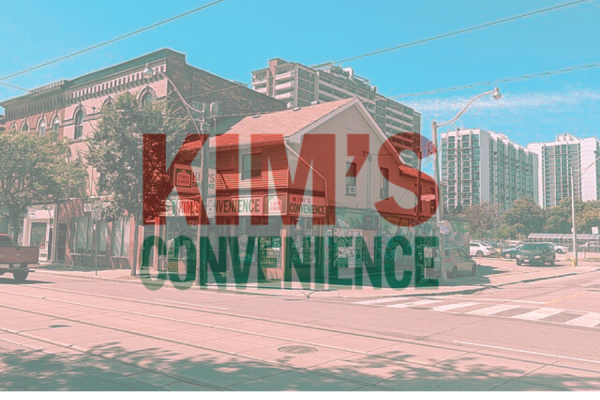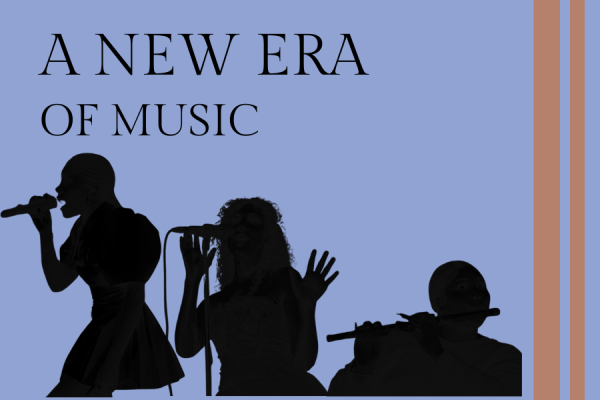The Police vs U2 – Battle of the 80s Blockbuster Bands
This piece is part one of a two-part series.
Turn on any classic rock radio or 80s station, and you’re bound to hear a Police song. This band, while hugely popular, never got many imitators, never released a reunion album, and has wormed their way into music culture despite not being critically recognized for their talents. Their hits are still iconic despite the band’s last concert being 15 years ago, and their distinct musical style occasionally sees imitators on pop radio today, although bizarrely these copycats emerged not during the band’s heyday but years after their breakup. Through all this, the band established themselves as the most successful rock band of the late 70s and early 80s. Oddly enough, just as the band was eroding, another band with some key similarities began to emerge, succeeding The Police as the world’s British rock band of choice. Both had a charismatic and hunky lead singer with a one-word pseudonym, a sound that deftly mixed new wave with classic rock and international music, and a hugely successful ballad with slightly sinister undertones that would accompany weddings for years to come. This other band was known simply as U2, and while their trajectory shared some things in common with The Police, their futures would diverge greatly. While The Police would burn out while they were ahead, U2 evolved and continues to release albums now, losing relevance and embarrassing themselves many times but always remaining relevant and changing their sound. Both are bands I have a myriad of complex feelings about, and I intend to examine them in this article. So bleach your hair, turn on the red light, and bullet the blue sky, and have a beautiful day as we interrogate these hugely successful but sometimes infuriating groups.
We’ll start with The Police, the group more commonly associated with the punk movement. Despite that early appraisal, however, the band’s members were far from their mohawk-bearing contemporaries – lead singer and bassist Sting (real name Gordon Sumner) was a bookish school teacher, drummer Stewart Copeland had played with jazz progressive rock act Curved Air, and guitarist Andy Summers was in his thirties and had played with 60s stalwarts like The Animals and The Soft Machine. Not exactly Sex Pistols, but their sheer musical chops gave them an edge over their punk contemporaries. The band set themselves apart from their peers in a multitude of ways – first, the band’s structure was unique. Sting was the lead vocalist and bassist, and not only was he a fantastic bass player, he also possessed a high and distinct voice that could soar as well as growl, complete with a unique and slightly exotic-sounding accent. Guitarist Andy Summers was far from a traditional punk guitarist – his riffs were cyclical and dreamy-sounding, never once overpowering the song and very rarely being distorted or crunchy. Summers knew when to step back and let the bass and drums carry the song, and they often did. Speaking of drums, Copeland might have been the most talented and proficient drummer of his time – his fills and patterns are insane in their complexity and fluctuating rhythms, and listening to the cymbals alone is an intoxicating experience. But while these musicians were talented on their own, together they worked beautifully. The word that comes to mind when describing their incredible musicianship and collaboration as an ensemble is tight – every instrument is so precise and always in service of the song, locked in irresistible rhythms. Watch any live performance by the group and you’ll hear a well-oiled machine with so many intricate fills and parts that never once seem overbearing. And it doesn’t get much tighter than on Outlandos D’Amour, the bright and striking debut by this power trio. Elements of punk remain in their sound but this record is all about hooks, whether instrumental or vocal, straight from the surging intro Next to You, which begins the album and their career powerfully. The rest of the album reveals what would be one of the band’s greatest strengths: upbeat rock tunes that hide sinister undertones in their lyrics. The album’s two biggest hits are about shockingly dark topics – the choppy reggae hit Roxanne is about prostitution, which did nothing to undermine its great success on the charts, and Can’t Stand Losing You is about suicide, albeit with a darkly humorous twist. The narrator laments the end of a relationship, not because he misses the girl but because she returned his “LP records and they’re all scratched”. Both are incredible masterpieces that brim with catchy melodies and memorable witty lyrics, and both would take this small trio into the stratosphere. The rest of the album is great, too, although there are a few failed experiments such as the spoken word Be My Girl-Sally and the preachy and reverb-drenched Born in the 50s. The Police would refine their sound on their following album, which would prove an even greater success and establish them in the rock pantheon forever.
On Regatta De Blanc, for the most part, the tempos are faster, the quality crisper, and the melodies zippier and more memorable. There’s no room for experimentation – each song is built on economy and power and crackles with energy and life, although things get a little dicey towards the end. The lyrics tend towards more typical concerns than the darker and stranger writing on their debut, but they still tend towards the odder side of things. Copeland contributes four songs this time, and while they aren’t as strong as Sting’s contributions, they are pretty good nonetheless. We begin on what is, for my money, their best song – Message in a Bottle, an intense but never crushing exploration of loneliness built on a haunting cyclical guitar riff and riding over a tense, fast-paced tempo that never lets up. With a small bass refrain and fast precise drums, as well as a soaring and powerful vocal from Sting, it’s the perfect showcase for what the band could do. Sure it’s fast and intense but it’s compulsively listenable and immensely catchy and poppy – the lyrics may not be particularly relatable on a surface level but they speak to all of our intrinsic loneliness in a way very few songs can do even literally. It’s a truly beautiful piece of art and one of my favorite songs of all time. It would be impossible for any album to measure up to this captivating opening but the rest of it does come pretty close. The instrumental title track is an excellent showcase for Copeland’s sprightly drumming, It’s Alright For You is an obligatory nod to their punk roots and features a rare guitar hero moment for Summers, the haunting Bring On The Night is another tune centered around a Summers arpeggio and it’s one of the band’s most underrated. The album’s other genuine masterpiece is the spacey and slow Walking on the Moon, which slows down the attack of the first half of the record to a stately reggae trot that imitates the titular activity. The song’s lyrics are genuinely sweet and express love in the form of walking home from a lover’s house and feeling elated. The lazy rhythm and hopeful chorus make this one of the band’s most relaxed and genuine songs, and the inclusion of barely audible burbling synthesizers during the instrumental would signpost a change in direction for the band that was soon to occur. This beautiful song is followed by the comical and genuinely hilarious On Any Other Day, written and sung by drummer Copeland. His voice is typically pedestrian and delivers sitcommy lyrics that haven’t aged particularly well but are nonetheless very funny. Copeland’s mock anguish in the song’s spoken word asides and the chipmunk choir that enters at the end is the silliest the band ever got, and it’s a welcome respite from the album’s tone. Another Copeland track is the waltzy and piano-based Does Everyone Stare which is completely different from anything else on the album, and despite its awkward rhythm, it’s cute and unique. The final track No Time This Time is about as typical Police as you can get, sonically resembling many other previous songs on the record but hey, those songs are good too and this one is merely less stellar.
1980 saw the release of The Police’s third album, but another band was rapidly bubbling under at the same time. In October, an Irish four-piece released a striking debut, lead by another soaring vocalist and minimal echoey guitarist. The vocalist was the charismatic and passionate Bono, and the guitarist would go by the similarly mysterious name of The Edge. Perhaps they took from The Police for inspiration, but they forged a sound all their own on their intense and powerful debut, simply titled Boy. After some clattering, the record begins with a stunning wall of guitars, attacking viciously on a simple but forceful riff. After some echoey tom beats, the whole band comes in for one of the finest 3 and a half minutes in rock history. Imagine the preachy, bloated, and pretentious U2 of the modern day and you’ll quickly forget it when hearing I Will Follow. The lyrics are impressionist and carry none of the sloganeering you’d hear on previous cuts – this song is lean, loud, and explosive, but it’s not quite punk. Much like The Police, U2 conveniently skirted around that loud and brash genre and made their own distinct style, something more nuanced and notably commercial. The rest of the album follows much in the same vein, to excellent effect. The record was an underground hit, and the band gained credibility as they toured, with Bono’s onstage intensity making them a popular live act.
Elsewhere, the Police were working against the clock to release their fourth album, Zenyatta Mondatta. The opening track, Don’t Stand So Close To Me presented a return to the darker subject matter of Roxanne and Can’t Stand Losing You, and paired it with a tense and atmospheric instrumental that begins on an ominous synthesizer note and features an instrumental break replete with a washing synth-guitar. The lyrics concern a student-teacher affair, something which many saw as suspiciously close to home for Sting, a former school teacher. Sting insists that the song is fictional, but regardless of its basis in fact, the song caught on, becoming a hit and worming its way in as one of the band’s biggest hits. The dark subject matter carries over into the second track, the brooding Driven To Tears, which would prove to be the band’s first political song, a well they would continue to mine from as their career deepened. One of the band’s principal gripes with the album was its accelerated production time – the total time spent on the album was four weeks, barely enough time as was satisfactory for the band. Indeed, it seems as though less detail was put into the album than in the previous release. The production is thinner and sounds sparer, with more empty space. It does add an almost ghostly and echoey sound to the record, marking it as unusual within the group’s catalog. The playing is also notably less showy than on previous albums, especially on Copeland’s part – his stick mastery on previous albums has lessened and he only contributes one song to the track list compared to the 6 he wrote for Regatta de Blanc. Perhaps the lack of detail and precision contributed to the band’s decision to pointlessly re-record the album’s two biggest singles in 1986. Besides Don’t Stand So Close To Me, the other hit to be re-recorded was De Do Do Do, De Da Da Da, a peculiar oddity within the band’s list of hits. The lyrics are somewhat problematic and the chorus is purposefully stupid, but it lacks the energy and upbeat tone of their similar hits, sounding too cyclical and needlessly anxious for a tune that doesn’t make much of a point. The upbeat and slightly annoying chorus is at odds with the tense and dark verses and overall, it’s my least favorite Police hit. Indeed, this album is not quite as strong as the previous two, lacking hit firepower and energy that accompanied the previous releases. Sure, there are great songs, but even the filler instrumentals sound uninspired this time around. It’s still worth a listen, of course, and would pick up many accolades and high chart success but the stagnation on display indicated that a change needed to be made for artistic growth. And change they did.
Meanwhile, it seemed as though U2 was unable to capitalize on the success of Boy. The morosely titled and ugly-sleeved October. The album shows an increased focus on religion and god and perhaps this turned listeners off. Much like Zenyatta Mondatta, October was rushed, although the problem this time wasn’t an impending tour but Bono’s loss of a briefcase of lyrics, necessitating hasty rewrites and improvisation. It shows, and it would be the first in a series of occasional missteps the band would occasionally face. Luckily, they picked up their feet for their follow-up the bloody and anthemic War, a record of pure slashing power. The album pivots from the religious overtones of October and the childhood themes of Boy and instead focuses on intense political subjects over newly harsh and frantic instrumentals. Sunday Bloody Sunday begins the album powerfully – with an aggressive and snappy military drumbeat, followed by a stunning guitar arpeggio and shivering violin, evoking images of revolution and bloody streets. And that’s not even getting to the lyrics and vocals. Bono sings the hell out of this song – it might be his finest vocal performance. The song sends chills down my spine and remains one of their greatest performances and one of the best songs of all time. The chorus is catchy, but the instrumental is so aggressive and Bono’s vocals so intense and passionate that you are forced into listening and paying attention – it’s one of the best wake-up call or pump-up anthems ever composed. The addition of a skittering violin adds a great old-world flavor to the song, making it timeless. Seconds follows, keeping the energy up, with a rare lead vocal by The Edge. But the real other star of the show is New Year’s Day, the third track. It’s legitimately hard for me to tell which song is better, New Year’s Day or Sunday Bloody Sunday. Sunday is more immediate and intense, but New Year’s Day is far more chilling and epic. A ghostly and haunting piano anchored by prominent and striking guitars set a desolate and stark bed for Bono to sing his heart out over. The lyrics are similar in tone to Sunday Bloody Sunday, but they place an emphasis on the personal effects of political strife, notably the narrator’s lover, who he hopes to see again after the unspecified conflict ends. New Year’s Day is a masterpiece that is simply beautiful and astounds me with every listen. The rest of the album is great too, and while it never matches these twin masterpieces, it still has plenty of amazing songs worthy of inclusion among the band’s best work. Two Hearts Beat As One is an energetic love song with cool backing vocals, Drowning Man is a hypnotic and churning gem with similar subject matter that stands as one of the groups most underrated tracks. A few songs muddy the band’s attack and simplicity with superfluous girl-group backing vocals, but this is forgiven with the stunningly beautiful closing track, the simple and timeless 40. Its meditative tone ends the album on a stunning but hopeful note, drawing the harshness and intensity that defines the record to a solemn close.
The Police would take their time with a follow-up, and this extended time would result in a record that was starkly different from their other work. Expanding significantly from the simple guitar-bass-drums setup of previous albums, the introduction of new producer Hugh Padgham brought horns, saxophones and plentiful keyboards and synthesizers. Unfortunately, I’m not the biggest fan of this album – I think it sounds dated and the songs aren’t as strong as previous releases. I do enjoy the singles, but even they aren’t quite as strong as previous ones. Every Little Thing She Does Is Magic is a masterpiece that is the first fully pop song that the band would release, minimizing guitars and bass and bringing piano and choral-sounding synths to the fore for a jubilant and beautifully expressive tune. The other big hit was Spirits In The Material World, an appropriately spooky-sounding tune that further minimizes Summers’ guitar. It’s fine, but it has never really done much for me. The synthesizer part sounds off-key and detuned, being rather unappealing to my ears. This is kind of a theme for this record – the synthesizer parts sound kinda gross and weird, and the saxophones that intrude on several songs are tuneless and don’t add much besides needless squawking. It’s not a bad album but it’s certainly the band’s weakest.
After War’s commercial success, it was only natural that U2 would want to follow its success with more of the same. But the band and Lillywhite agreed that a change in direction would be wise – they wanted a break from War’s harsh textures and militant themes. After auditioning multiple new producers, the band settled on what initially seemed like an odd choice – Brian Eno and his production partner Daniel Lanois. Eno was an accomplished solo artist best known for creating ambient music – his soundscapes were spacey and ethereal, a far cry from the close-mic’d sound of War. His producer credits consisted of arty and ironic new wave bands like Talking Heads and Devo, not sincere and passionate arena rock groups. Eno was initially intimidated by U2’s boldfaced sincerity, but the match quickly proved to be one made in Heaven – Lanois and Eno’s use of atmospheric synthesizers and creative producing tactics inspired U2 to greatness like never before. The difference is immediately felt from the first track, the epic and cavernous A Sort of Homecoming. While the echo and timbre of Edge’s guitars had previously been used for attack and aggression, now they are used for rocket-launcher soar and stratospheric intensity, along with panoramic sweep. No longer were the songs pure live-concert simulation, now they imitated film scores – Bono acting his heart out over vistas and canyons, over the vast array of space, over beautiful scenes of violence and love, whilst The Edge paints these scenes beautifully with his guitar as the rhythm section provides the texture. This is nowhere better exemplified than in the second track and biggest hit, the anthemic Pride (In The Name of Love). This song is a powerful evocation of political unrest and pure emotion mixed – although Bono would later express regret over the sketchy and non-specific words, they work beautifully. It only gets better from there, though. Wire was an attempt to mimic the sound of Eno’s old flames Talking Heads, at least in terms of instrumentation. The guitar is funky and scratchy, the tempo fast and the rhythm section tight and intense. The important differentiation from their inspiration, however, is Bono. While David Byrne of the Heads had a yelpy and nervous-sounding voice that skipped around the beats, Bono overtakes the track entirely. His overpowering voice transforms the song, and a heavy layer of reverb coats the song. My favorite track is the title track, a stunning epic complete with a cinematic string section. In my mind, it’s one of their best songs, and one of their most moving, so it’s natural that from here the album slows down. Promenade and 4th of July are short and low-key near-instrumentals that are nice and pleasant to listen to before we’re treated to the lengthy epic Bad – a six-minute tour de force about drug use that paints the issue in simple and impressionistic terms. It contains one of Bono’s most passionate vocals (there is quite a lot of competition for this, so that should tell you something) and a typical Edge guitar soundscape. The album’s major issue is the inclusion of the similarly long Elvis Presley In America, which is 6 minutes as well. Unlike Bad and the title track, though, it’s bloated and pretentious, with nonsensical lyrics drenched in effects and over a pretty boring instrumental that’s just the opening track slowed down. The album would be so much better without it, and it’s followed by the dull MLK, which seems a half-hearted attempt to rewrite 40 from War. Other than those two skippable tracks, though, the album is great, filled with passion and energy and excellent production much different from the previous albums.
Both The Police and U2 would reach their commercial peak on their fifth albums – both were massive successes artistically and monetarily, and both would retain the same producer as their previous record. But the success of both wouldn’t come easy, and the aftermath of both would disastrous.
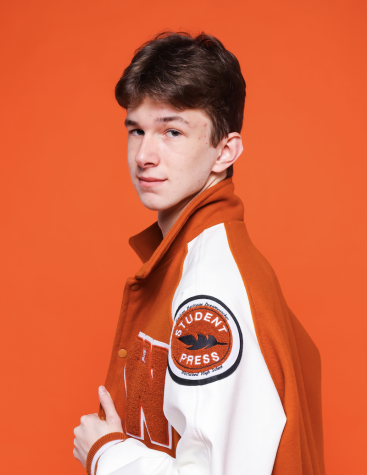
Class of 2023
I am currently Westwood Horizon's video editor, and also one of the hosts of Friendcast, our website's podcast video series. In addition...

